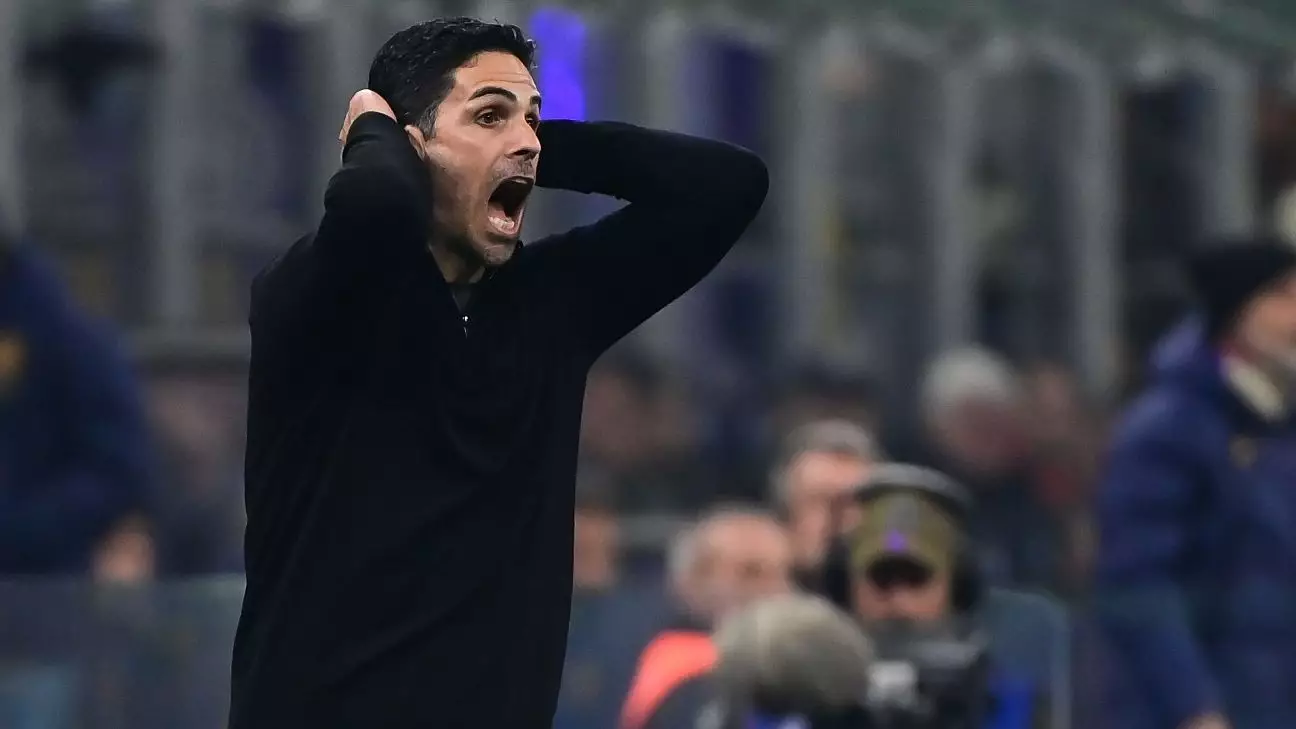In a high-stakes clash at the Stadio San Siro, Arsenal faced an unfortunate defeat against Inter Milan, culminating in a 1-0 scoreline that left their Champions League ambitions hanging by a thread. The pivotal moment in the match came just before halftime when Hakan Çalhanoglu converted a penalty, a decision that has sparked controversy and frustration among Arsenal players and coaching staff. Mikel Arteta, the head coach, expressed his discontent, emphasizing that his team had showcased an impressive performance, arguably their best in Europe in recent memory, despite the unfavorable outcome.
Arteta’s ire was particularly directed towards the officiating, notably the handling call against Mikel Merino, which he believed warranted more scrutiny. “This was a 1000 percent penalty,” he stated, reflecting the passion with which he defends his players and the integrity of the game. The dichotomy of the officiating—where one incident deemed a penalty while another similar instance merely overlooked—highlights the inconsistencies that often plague football. This controversy detracted from what many considered a tactical triumph for Arsenal, as the team maintained significant possession throughout the game but ultimately fell short in converting opportunities.
Despite the defeat, Arteta remains adamant about the progress his team has made. The narrative surrounding the match portrays a team that is evolving, capable of dominating possession even against formidable opponents like Inter Milan. Perhaps even more critical is the coach’s assertion that this performance was a stepping stone, not a stumbling block. His resolve provides a semblance of hope, urging fans and players alike to focus on upcoming challenges, notably the impending Premier League clash against Chelsea.
This loss marks another chapter in Arsenal’s rollercoaster season, leaving them in a precarious position in the Champions League standings. Yet, as Arteta looks forward, the lessons learned from tough matches against respected opponents could foster resilience. Integrating these experiences can be pivotal in shaping a squad’s mentality and approach to future contests.
As Arsenal seeks to navigate the complexities of European football, Arteta’s management style will be tested more than ever. Therein lies the essence of his leadership—finding opportunity in adversity. The Gunners must now regroup, refine their strategies, and channel their frustrations into productive performances as they continue their pursuit for glory both in the Premier League and on the European stage.
The road ahead remains fraught with challenges, yet within these moments of disappointment lies the potential for significant growth and improvement. Arsenal’s season may hinge on their ability to rebound from setbacks, transforming frustration into a relentless quest for success.
